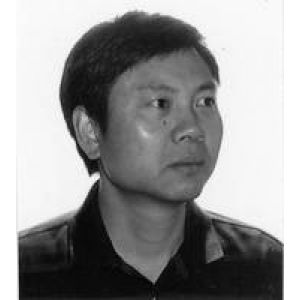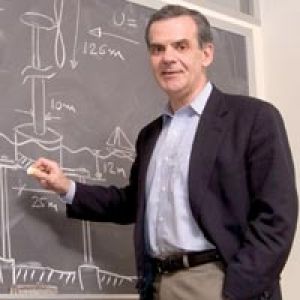Design of Ocean Systems

Chryssostomos Chryssostomidis
Director, MIT Sea Grant, Doherty Professor of Ocean Science and Engineering Professor of Mechanical & Ocean Engineering Home Phone: 617 253-7131 Personal Email: chrys@mit.edu Interest Areas: autonomous underwater vehicles Website WebsiteDevelopment of technology and systems for advanced autonomous surface and underwater vehicles.

Franz S. Hover
Finmeccanica Career Development Professor in Engineering Home Phone: (617) 253-6762 Personal Email: hover@mit.edu Interest Areas: networking, engineering Website WebsiteDesign methods for complex ocean systems; autonomous inspection of in-water ships; design of ocean networks comprising groups of communicating vehicles as well as fluid and power systems.

John Leonard
Professor of Mechanical and Ocean Engineering Home Phone: (617) 253-0607 Personal Email: jleonard@mit.edu Interest Areas: navigation, robotics, mapping Website WebsiteNavigation and mapping for autonomous mobile robots, robotic localization and mapping applications below, on and above water in marine and river environments.

Yuming Liu
Principal Research Scientist Home Phone: (617) 252-1647 Personal Email: yuming@mit.edu Interest Areas: Theoretical and computational hydrodynamics Website WebsiteDevelopment of tools for analysis and design of advanced ocean systems including ships, offshore platforms, and underwater vehicles. Development of tools for ocean wave prediction. Wave/tide energy extraction, and advanced propulsion.

Nicholas Patrikalakis
Kawasaki Professor of Engineering Professor of Mechanical and Ocean Engineering Home Phone: (617) 253-4555 Personal Email: nmp@mit.edu Interest Areas: Robotics and Sensing Website WebsiteRobotics and Sensing, Dynamic Data-Driven Forecasting Systems, Computer-Aided Design, Visualization.

Paul Sclavounos
Professor of Mechanical Engineering and Naval Architecture Home Phone: (617) 253-4364 Personal Email: pauls@mit.edu Interest Areas: Maritime, offshore and energy engineering applications Website WebsiteModeling of free surface flows past conventional and high-speed vessels and the estimation of their resistance and seakeeping in deep and shallow waters. Coupling of hydrodynamic simulations with optimal control theory for the minimization of the motions and the fuel efficient navigation of vessels.

Alexander Slocum
Neil and Jane Pappalardo Professor of Mechanical Engineering Home Phone: (617) 253-0012 Personal Email: slocum@mit.edu Interest Areas: MEMS, precision engineering, machine and product design Website WebsiteDesign and manufacture of innovative medical devices, precision machines and components, and energy systems, including offshore, floating wind turbines.

Michael S. Triantafyllou
William I. Koch Professor of Marine Technology; Professor of Mechanical and Ocean Engineering; Associate Head for Ocean Engineering Home Phone: (617) 253-4335 Personal Email: mistetri@mit.edu Interest Areas: fluid dynamics, biometrics Website WebsitePhysics of flow-sensing in fish and marine mammals; achieving super-maneuverability in ocean vehicles through flow feedback control; development of biometric robots to study the agility of fish and cetaceans.

J. Kim Vandiver
Dean for Undergraduate Research, Professor of Mechanical and Ocean Engineering Home Phone: (617) 253-4366 Personal Email: kimv@mit.edu Interest Areas: structural dynamics, ship vibration, and downhole drillstring dynamics Website WebsiteDynamics of offshore structures and flow-induced vibration.

Tomasz Wierzbicki
Professor of Applied Mechanics Home Phone: (617) 253-2104 Personal Email: wierz@mit.edu Interest Areas: structural crashworthiness and failure Website WebsiteStructural mechanics of large complex structures, impact loads and weapon effects on structures, and crashworthiness.

Dick K.P. Yue
Professor of Mechanical and Ocean Engineering; Director of International Programs Home Phone: (617) 253-6823 Personal Email: yue@mit.edu Interest Areas: fluid mechanics, ocean engineering Website WebsiteMarine fluid mechanics and ocean engineering: problems ranging from coastal and offshore development to understanding the role of oceans in global warming.




